Thousands at 'March for Europe' Brexit protest
- Published
Thousands gather in central London for Brexit protest
Thousands of people have marched through London to protest against the referendum decision to leave the EU.
Demonstrators at the "March for Europe" rally, organised on social media, held placards saying "Bremain" and "We Love EU".
In the referendum on 23 June the UK voted to leave the EU, with 51.9% in favour of leaving and 48.1% supporting Remain.
Critics said that those protesting who lost the vote were "having a tantrum".
Demonstrators gathered around Park Lane before setting off for Parliament Square. A rally also took place in York.
An organiser of the London march, Keiran MacDermott, said protesters hoped to stop the government from triggering Article 50, which begins the formal process of the UK's withdrawal from the EU.
Fellow organiser Mark Thomas, an activist, said he felt "anger, frustration" and a "need to do something".
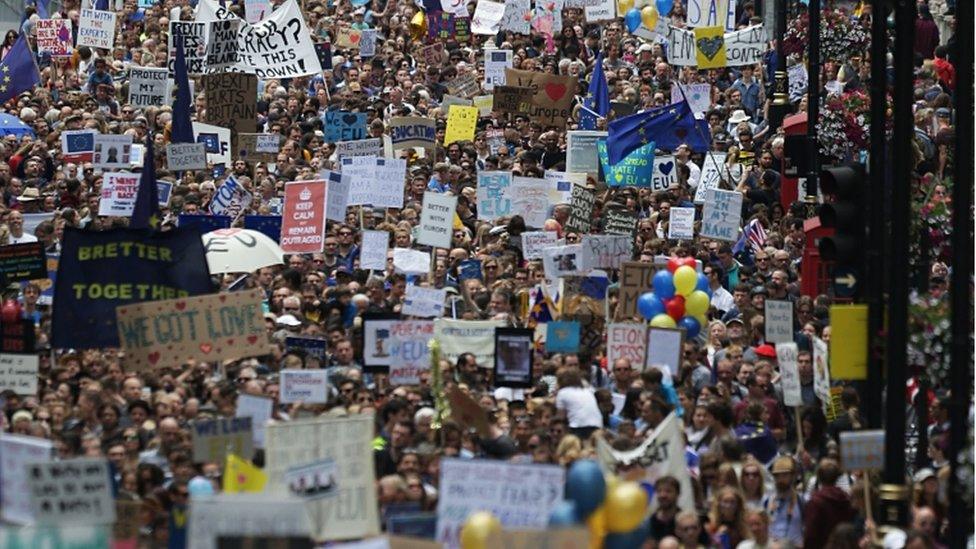
The "March for Europe" rally was organised on social media
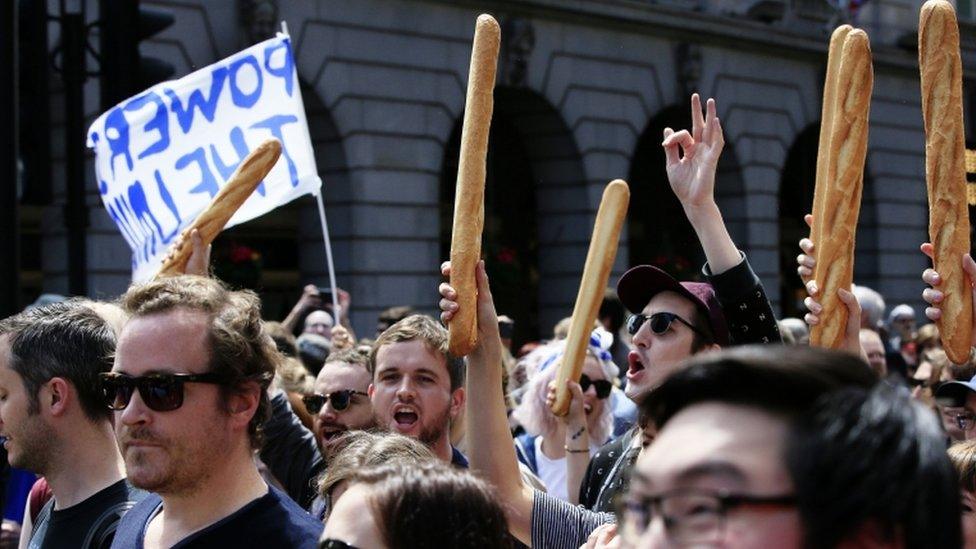
Marchers chanting "Fromage not Farage" and waving baguettes were among the crowds
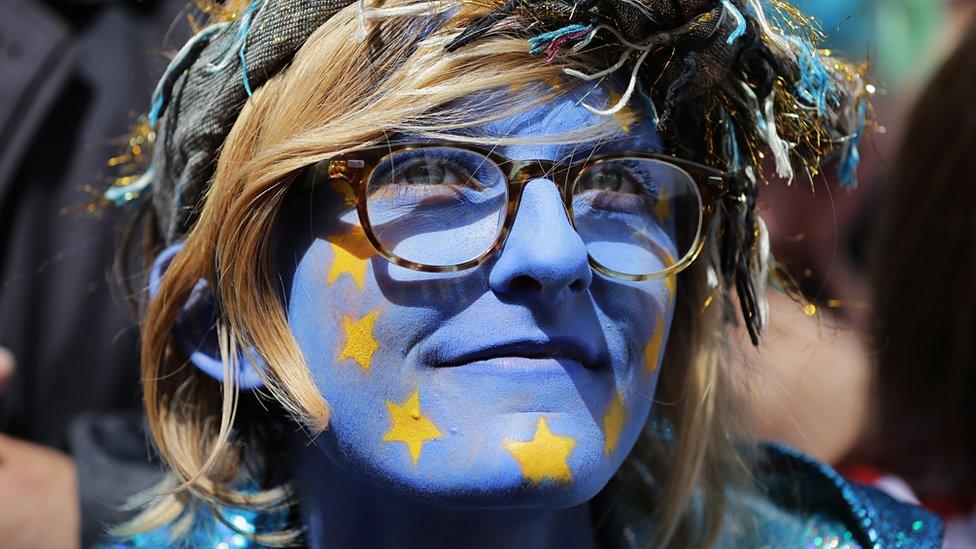
At the end of the two-mile route, protesters gathered in front of Parliament, and listened to speakers including Labour MP for Tottenham David Lammy, Liberal Democrat leader Tim Farron, leftwing commentator and activist Owen Jones and musician Bob Geldof.
Mr Geldof urged Remain campaigners to take to the streets, speak to their neighbours and work to stop the UK's exit from the EU.
"We need to individually organise ourselves. Organise those around us and do everything possible within our individual power to stop this country being totally destroyed," he said.
Pulp singer Jarvis Cocker also recorded a video message for the rally, holding up a world map and saying: "You cannot deny geography. The UK is in Europe."
Mr Farron later tweeted, external: "Wow. So inspiring!!! Such amazing support for Britain in Europe today."
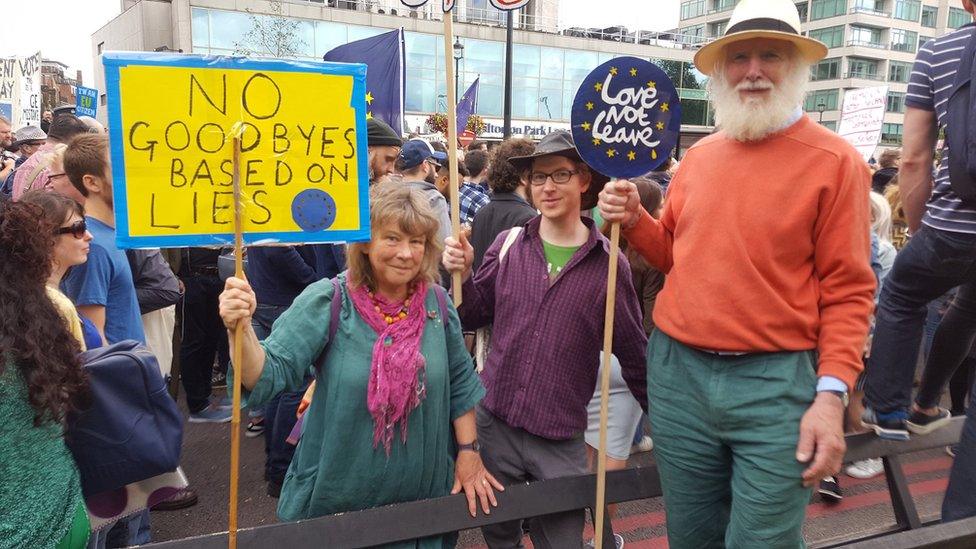
The North family (l-r) Sally, Ace and Tom travelled to London to join the rally
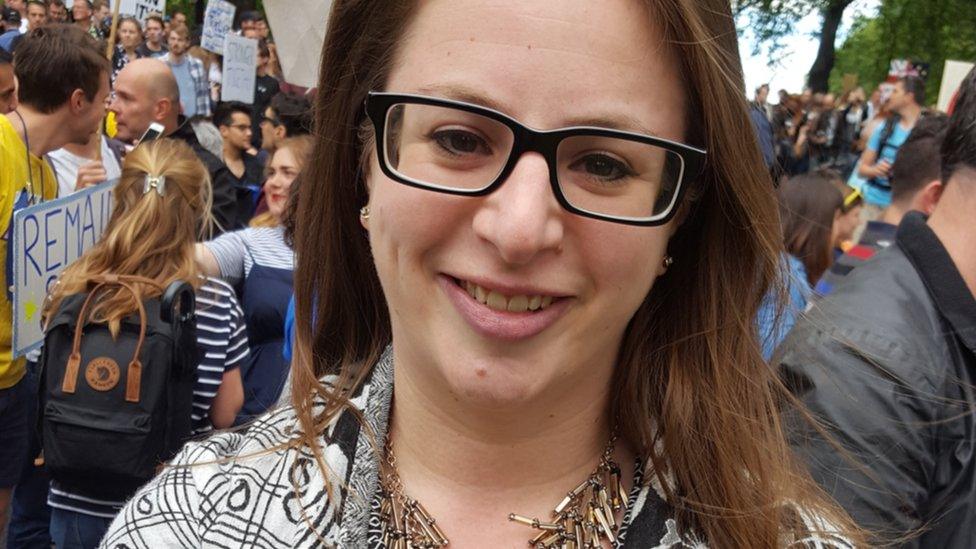
Laura Honickberg, who was at the rally, said she felt the Leave campaign was "based on lies"
Among the crowd was Tom North, from Norfolk, who was marching with his family.
"I'm here because I feel the country has been conned into voting for something that will turn out a disaster. I'm particularly concerned about the effect it will have on scientific research," he said.
His son Ace North, 34, from Oxford said: "I was able to do my PHD in an EU country thanks to being in the EU so I feel quite passionate about it."
Fellow protester Mark Thomas said the referendum campaign "was full of misinformation and people need to do something with their frustration".

At the scene

By Martha Buckley, BBC News
There is no official turn-out figure for this protest but there must be several thousand at least on the streets around Hyde Park corner.
There are whole families here as well as the young, the middle-aged, the elderly, British, European, Londoners, as well as those who have travelled from further afield.
The protest has been organised hastily, with a call put out on social media less than a week ago. Today many of those who spent the week sharing anti-Brexit memes online have turned up to voice their concerns in person.
There are placards, signs and banners aplenty expressing anger and resentment at the way the Leave campaign was conducted but also frustration at what's seen as a lack of clear leadership in the aftermath of the vote.
There is barely an organiser in sight and what police presence there is is very low-key - but this outpouring of feeling is also quintessentially British: Calm, polite and orderly.

Laura Honickberg, 33, from London, said she was concerned that the vote would lead to a rise in violence and hate crime.
"I'm Jewish and I find the rise of nationalism and hate crime in Europe deeply concerning," she told the BBC.
She added that she felt the Leave campaign "was based on lies, about money that was going to go to the NHS and now isn't, about what's going to happen to the economy. These are things that are going to directly impact me."
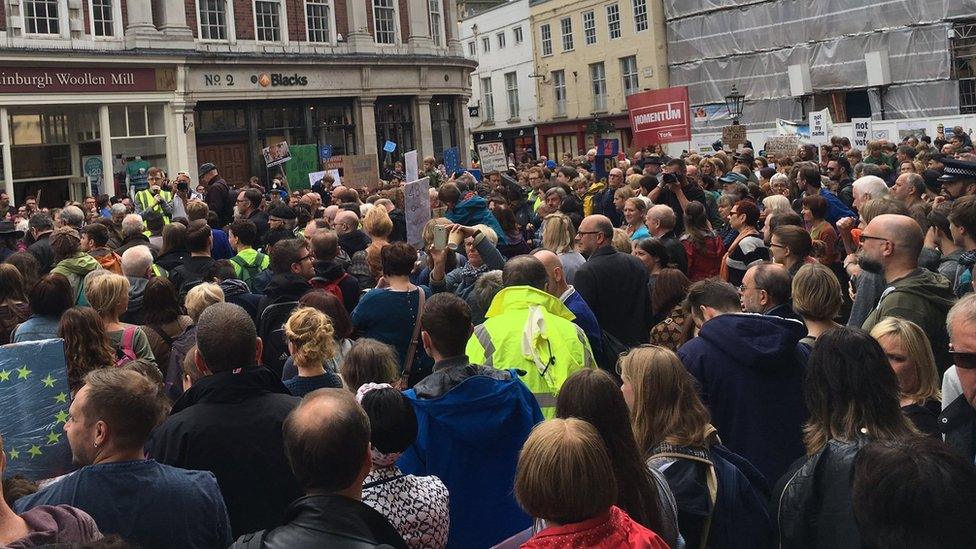
Hundreds of people also gathered for an anti-Brexit rally in York
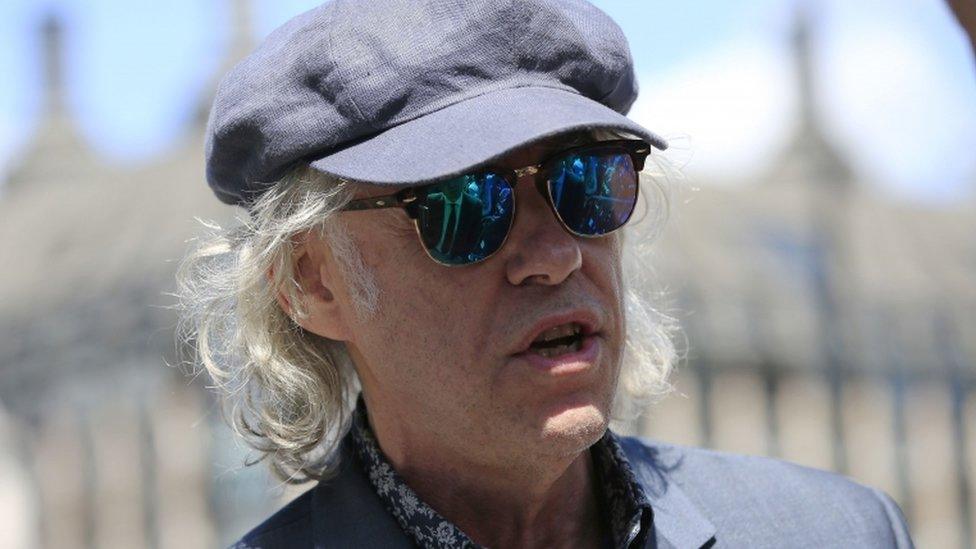
Musician and Remain campaigner Bob Geldof was among speakers at the rally in Parliament Square
The protest drew criticism on social media under the #MarchforEurope hashtag, with posts pointing out that 17 million people had voted in support of Leave.
Conservative MEP Daniel Hannan tweeted, external: "A gentle reminder, Remain friends, that more people voted to leave the EU than have voted for anything else, ever."
'Pathetic'
Claims that Leave voters "weren't listening" and "just hate immigration" were patronising, Mr Hannan said.
One user on Twitter accused the march of being "pathetic", adding: "Just people having a tantrum about the fact they didn't win."
Others shared GIFs of toddlers having tantrums and compared them to those taking part.

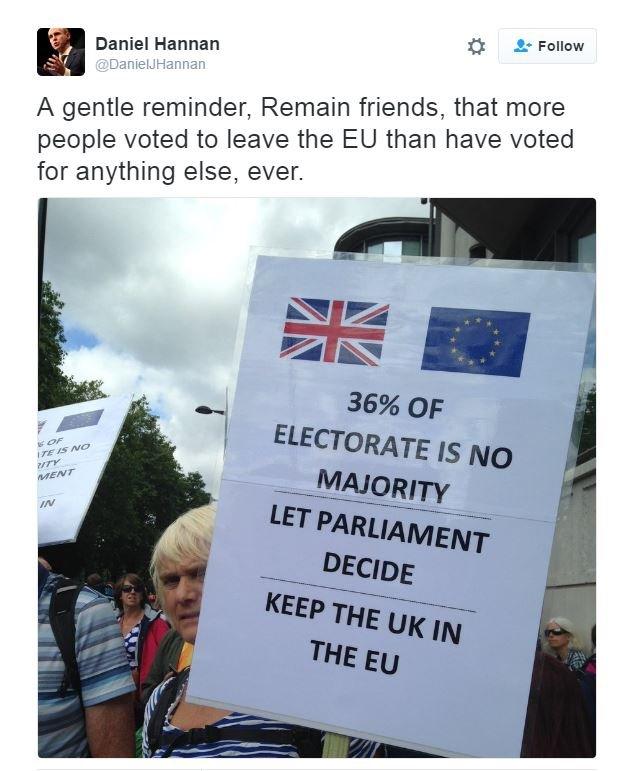
BBC News website readers emailed in with their views.
Catherine Eastwood, from Kent, said: "The continued protests over Brexit are pathetic. Those attending these protests continue to insult those of us who voted to leave by saying numerous things.
"I made my decision because the UK is a democratic society and I don't want to be dictated to by the EU. So as we are still living in a democracy the Remainers should accept the outcome of the referendum."
Barry Needham from Bolton, Lancashire, wrote: "The vote was to leave the EU - that's democracy for you. Get on with it, stop complaining."
Others were in support of the march, with Robin Hassall from Arbelour, Scotland, emailing to say: "If I lived nearer to London I would definitely have joined the protest march. I believe it was a protest vote based on lies."
Support for candidates
Meanwhile, Conservative MPs have been lining up behind candidates to replace David Cameron as the next prime minister and leader of the party.
Ex-Conservative leader Iain Duncan Smith came out in support of Andrea Leadsom saying she was the "right person to lead" negotiations post-Brexit.
Mrs Leadsom has said the new PM must be a Leave supporter - which would rule out frontrunner Theresa May.
On Thursday, Justice Secretary Michael Gove, one of the most prominent figures in the Leave campaign, announced he was running.
The other candidates to replace David Cameron are Stephen Crabb and Liam Fox.
- Published19 June 2016
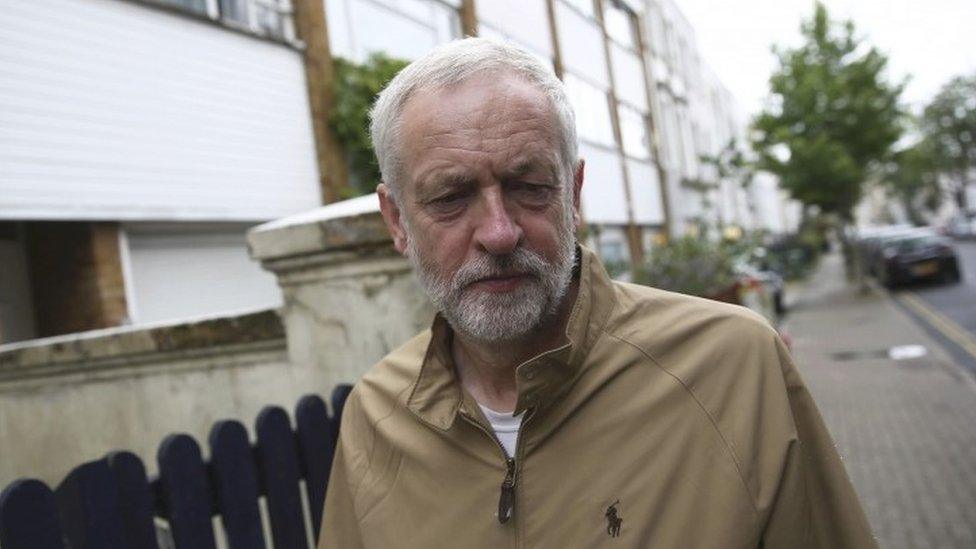
- Published1 July 2016
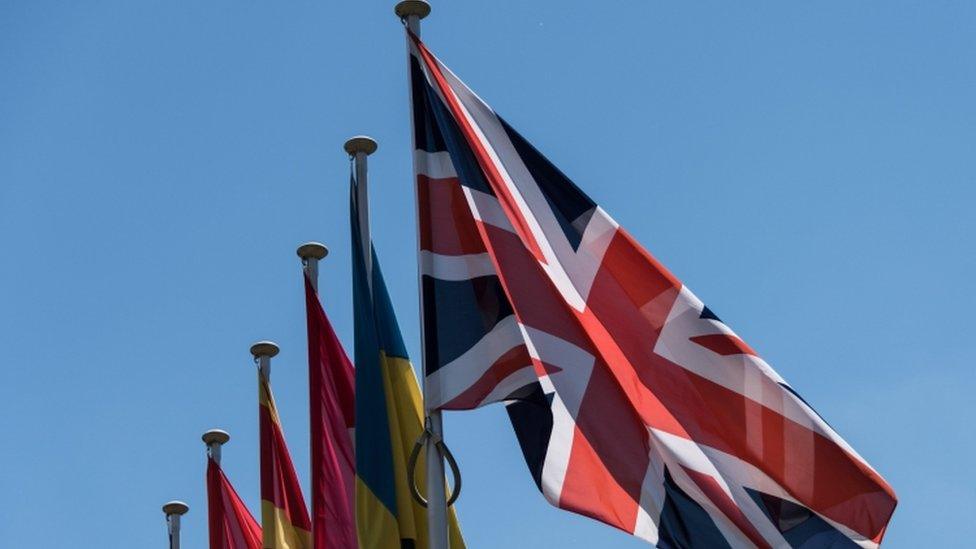
- Published30 June 2016
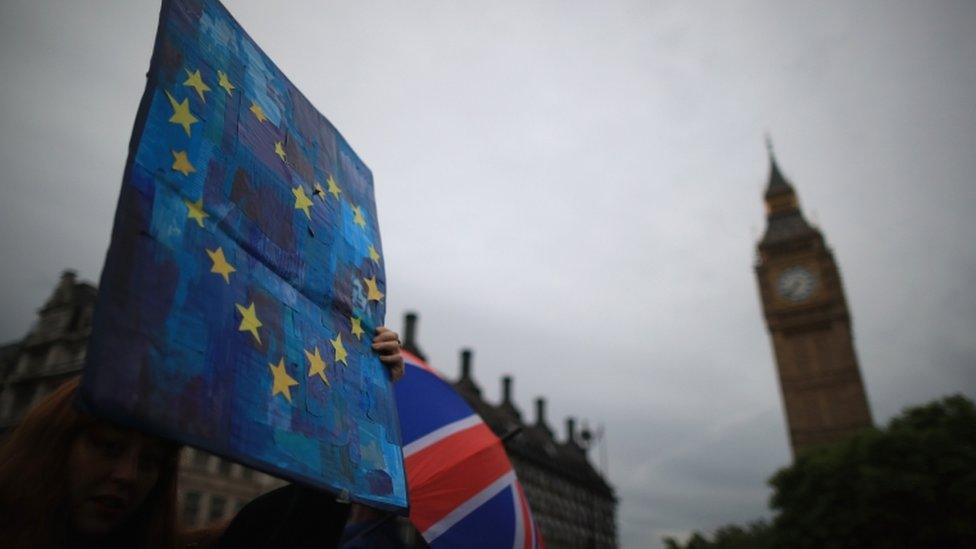
- Published29 June 2016
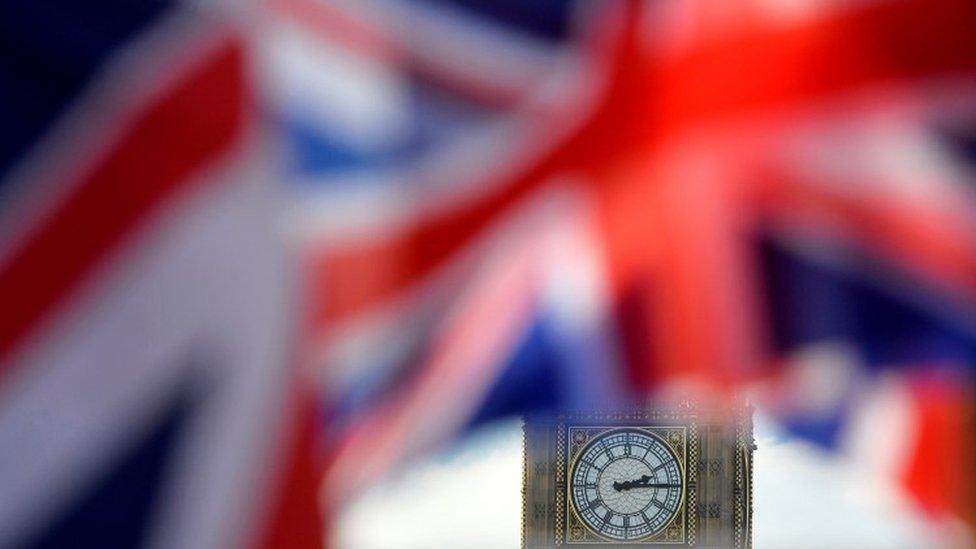
- Published30 December 2020
